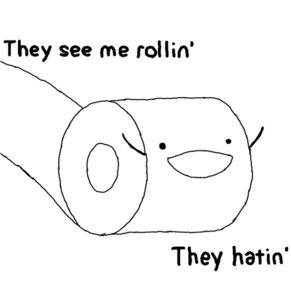12072044
Tissue Fluid and Lymph Vessels
Description
No tags specified
Resource summary
| Question | Answer |
| What is tissue fluid? | Tissue fluid is the fluid surrounding cells in tissue. It is made from oxygen, water and nutrients |
| Outline the process of pressure filtrationq | 1. At the arteriole end, the hydrostatic pressure inside capillaries is greater than that in the tissue fluid - this forces fluid out of capillaries, forming tissue fluid 2. As fluid leaves, the hydrostatic pressure reduces in capillaries; it is lower at the venous end 3. As water leaves capillaries, the water potential decreases 4. Plasma proteins in capillaries generate oncotic pressure; at the venous end there is lower water potential and high oncotic pressure 5. As water potential in capillaries is lower than in the tissue fluid, some water re-enters the capillaries from the tissue fluid at the venous end |
| TRUE OR FALSE Pressure is highest at the end of the capillary bed | FALSE Pressure is highest at the START of a capillary bed nearest the arteriole |
| What is the high pressure at the start of the capillary bed caused by? | The high pressure is caused by the left ventricle contracting and sending blood out of the heart at high pressure |
| TRUE OR FALSE: Not all of the tissue fluid re-enters at the venous end | TRUE Some excess tissue fluid is left over |
| What is the lymphatic system? | A drainage system made up of lymph vessels |
| What happens to the extra fluid that does not re-enter at the venous end of the capillary bed? | Excess tissue fluid passes into lymph vessels and are eventually returned to the blood through the lymphatic system |
| Excess tissue fluid passes into lymph vessels. Once inside, what is the tissue fluid called? | Lymph |
| Complete the sentence: _________ in the vessels stop the lymph going ______________. | VALVES in the vessels stop the lymph going BACKWARDS. |
| Where in the body is excess tissue returned to the blood? | Lymph gradually moves towards the main lymph vessels in the thorax. Here, it is returned to the blood near the heart |
| Where are red blood cells found? | Blood |
| Red blood cells are NOT found in tissue fluid or lymph. Why? | Red blood cells are too big to get through capillary walls |
| Where are white blood cells found? | Blood Tissue fluid (very few) Lymph |
| There are very few white blood cells tissue fluid. Why? | Most white blood cells are in the lymphatic system. They only enter tissue fluid if there is an infection |
| Where are platelets found? | Blood |
| In what circumstances are platelets found in tissue fluid? | Platelets are only in tissue fluid if the capillaries are damaged |
| Where are proteins found? | Blood Tissue fluid (very few) Lymph (only antibodies) |
| Why are there only very few proteins in tissue fluid/lymph? | Most plasma proteins are too big to get through capillary walls |
| Where is water found? | Blood Tissue fluid Lymph |
| TRUE OR FALSE: Tissue fluid and lymph have a lower water potential than blood | FALSE Tissue fluid and lymph have a HIGHER water potential than blood |
| Where are dissolved solutes found? | Blood Tissue fluid Lymph (Solutes, e.g. salt, can move freely between the three) |
Want to create your own Flashcards for free with GoConqr? Learn more.

